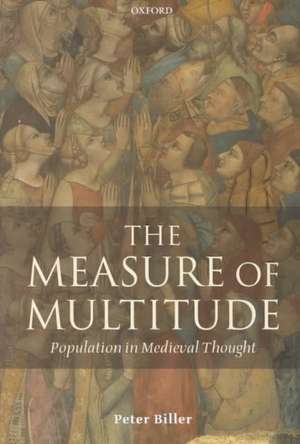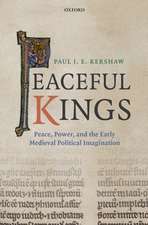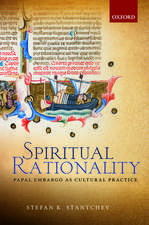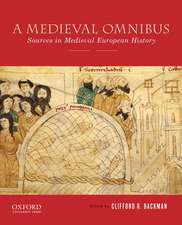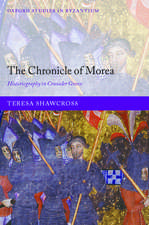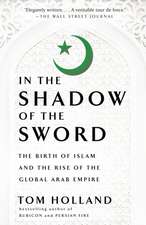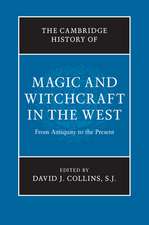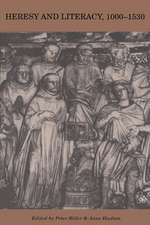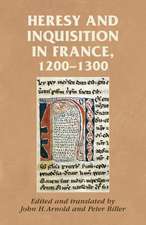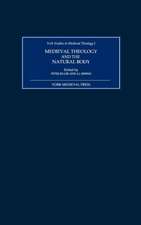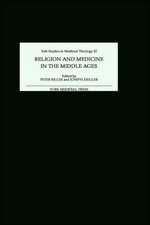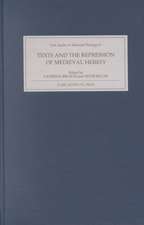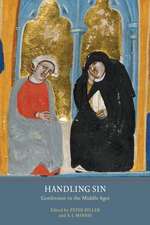The Measure of Multitude: Population in Medieval Thought
Autor Peter Billeren Limba Engleză Hardback – 14 dec 2000
| Toate formatele și edițiile | Preț | Express |
|---|---|---|
| Paperback (1) | 192.77 lei 31-37 zile | |
| OUP OXFORD – 16 oct 2003 | 192.77 lei 31-37 zile | |
| Hardback (1) | 359.98 lei 31-37 zile | |
| OUP OXFORD – 14 dec 2000 | 359.98 lei 31-37 zile |
Preț: 359.98 lei
Preț vechi: 515.78 lei
-30% Nou
Puncte Express: 540
Preț estimativ în valută:
68.88€ • 71.92$ • 57.01£
68.88€ • 71.92$ • 57.01£
Carte tipărită la comandă
Livrare economică 25-31 martie
Preluare comenzi: 021 569.72.76
Specificații
ISBN-13: 9780198206323
ISBN-10: 0198206321
Pagini: 506
Ilustrații: 8 pp black and white plates
Dimensiuni: 163 x 243 x 32 mm
Greutate: 0.89 kg
Editura: OUP OXFORD
Colecția OUP Oxford
Locul publicării:Oxford, United Kingdom
ISBN-10: 0198206321
Pagini: 506
Ilustrații: 8 pp black and white plates
Dimensiuni: 163 x 243 x 32 mm
Greutate: 0.89 kg
Editura: OUP OXFORD
Colecția OUP Oxford
Locul publicării:Oxford, United Kingdom
Recenzii
... this tour de force of intellectual archaeology ... a fascinating exposition of a whole series of 'demographic' subjects to which medieval writers gave their attention.
... a work of intellectual integrity and humility. Biller is acutely sensitive to what the surviving evidence can or cannot sustain ... a model of how intellectual history should be written, a work which is impressive as much for its formal approach as for its final conclusions.
This is a book which entertains as much as it instructs ... a lucid, scholarly, imaginative and persuasive book. Not the least of Biller's achievements is to have made so compelling a model for 'intellectual history' such an exciting read as well.
There are many strengths to this book, not least the imaginative lateral thinking required to conceive the topic in the first place ... an outstanding and original study, which approaches the high middle ages (in its reality as well as its thought worlds) from an unexpected but remarkably productive direction. Its heterogeneous interests should inspire a wide readership, including scholars of medieval medicine, population, theological thought, religious practice and canon law.
This excellent book is not a study of medieval population (although it does contain, amongst many other riches, a helpful summary of work on medieval demography) but concerns how medieval people thought about population ... astounding range of material.
Peter Biller has produced a trail-blazing book, packed with intellectual fireworks. It fuses diverse sources and scraps of information to detonate an explosion of insights ... anyone interested in pre-modern medicine must read it. It will stimulate and satisfy the curiosity of students and researchers alike.
Biller takes the reader on a grand tour of sources and themes ... There is no jargon in his book. He sensitively lets these texts speak, contextualizes them, and occasionally offers informed conjectures whenever the text does not provide a clear-cut proof.
This is not only a solid scholarly enterprise on the highest level, it is also a pedagogic manifesto of how one can and perhaps should handle historical sources.
This is an impressive piece of scholarship. Through careful explication of the sources, Biller provides an account of medieval demography that places medicine in a new and exciting context, one which gave medical theory added relevance for its contemporaries . This is a story to which every historian of medieval medicine will want to pay close attention.
Biller adopts a sophisticated approach to his material ... This work is primarily an exercise in the history of ideas, but it is also an extremely rich source of information for social historians of medicine.
Peter Biller ends his book with a question: is medieval demographic thought recognisably there? He has left his readers with only one possible answer - and in doing so changed the way we must think not just about the medieval past but about what has come after in terms of understanding the world.
... a work of intellectual integrity and humility. Biller is acutely sensitive to what the surviving evidence can or cannot sustain ... a model of how intellectual history should be written, a work which is impressive as much for its formal approach as for its final conclusions.
This is a book which entertains as much as it instructs ... a lucid, scholarly, imaginative and persuasive book. Not the least of Biller's achievements is to have made so compelling a model for 'intellectual history' such an exciting read as well.
There are many strengths to this book, not least the imaginative lateral thinking required to conceive the topic in the first place ... an outstanding and original study, which approaches the high middle ages (in its reality as well as its thought worlds) from an unexpected but remarkably productive direction. Its heterogeneous interests should inspire a wide readership, including scholars of medieval medicine, population, theological thought, religious practice and canon law.
This excellent book is not a study of medieval population (although it does contain, amongst many other riches, a helpful summary of work on medieval demography) but concerns how medieval people thought about population ... astounding range of material.
Peter Biller has produced a trail-blazing book, packed with intellectual fireworks. It fuses diverse sources and scraps of information to detonate an explosion of insights ... anyone interested in pre-modern medicine must read it. It will stimulate and satisfy the curiosity of students and researchers alike.
Biller takes the reader on a grand tour of sources and themes ... There is no jargon in his book. He sensitively lets these texts speak, contextualizes them, and occasionally offers informed conjectures whenever the text does not provide a clear-cut proof.
This is not only a solid scholarly enterprise on the highest level, it is also a pedagogic manifesto of how one can and perhaps should handle historical sources.
This is an impressive piece of scholarship. Through careful explication of the sources, Biller provides an account of medieval demography that places medicine in a new and exciting context, one which gave medical theory added relevance for its contemporaries . This is a story to which every historian of medieval medicine will want to pay close attention.
Biller adopts a sophisticated approach to his material ... This work is primarily an exercise in the history of ideas, but it is also an extremely rich source of information for social historians of medicine.
Peter Biller ends his book with a question: is medieval demographic thought recognisably there? He has left his readers with only one possible answer - and in doing so changed the way we must think not just about the medieval past but about what has come after in terms of understanding the world.
